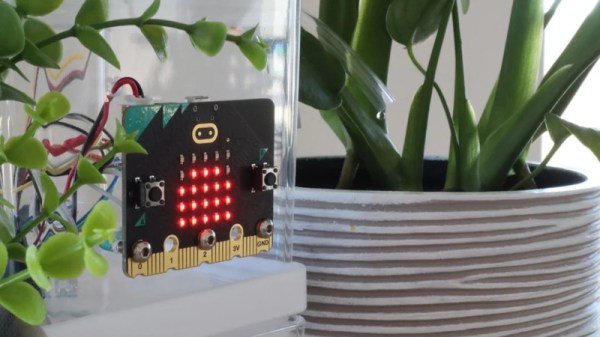The BBC has a long history of supporting technology education in schools. The BBC Micro introduced a whole generation of students to computers, and more recently the Micro:bit is teaching today’s children about embedded systems. [Michael Klements] happens to be a grown adult, but has whipped up a project using the little board to build an automatic plant watering system.
Rather than a simple timer-based system, [Michael’s] build measures soil moisture using a capacitive sensor. This has the benefit of not needing to be in direct contact with the soil as resistive sensors do, and thus the sensor can be built in a fashion that minimises corrosion. The Micro:bit reads this sensor using an analog input, and displays the moisture level using its inbuilt LED matrix as a graph. Once levels dip below a set threshold, a pump is activated to deliver water to the plant until the soil is suitably moist again.
It’s a simple project, but one that would be a great way to teach students about interfacing with pumps and sensors, as well as the basics of control systems. [Michael] also notes that further work could involve interfacing multiple Micro:bits using their onboard wireless hardware. We’ve thus far seen the Micro:bit used for everything from handheld gaming to gumball delivery. Video after the break.

















